In an online anthropology degree program, you can explore what it means to be human.
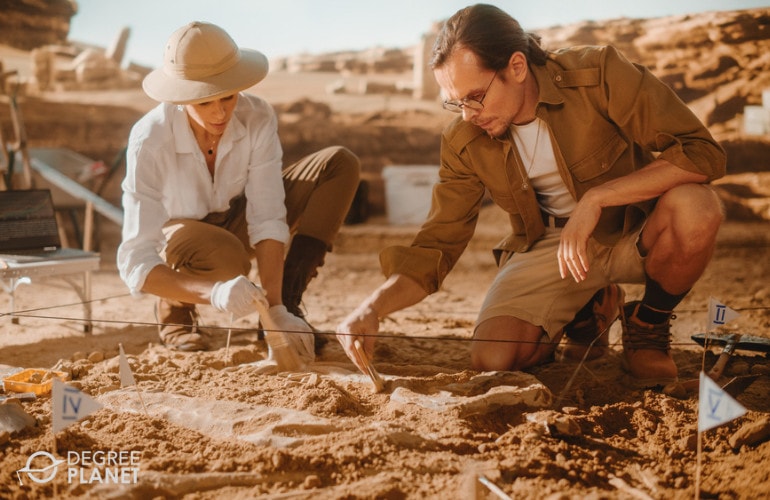
Anthropology is the study of people and the way they form societies, develop cultures, and live within their environments. The field reaches far back into the evolutionary origins of the species, yet it also provides insights into the modern world.
Editorial Listing ShortCode:
Studying anthropology at the undergraduate degree level could be the first step toward career paths in research, education, business, community service, or another field.
Online Bachelors in Anthropology Degrees
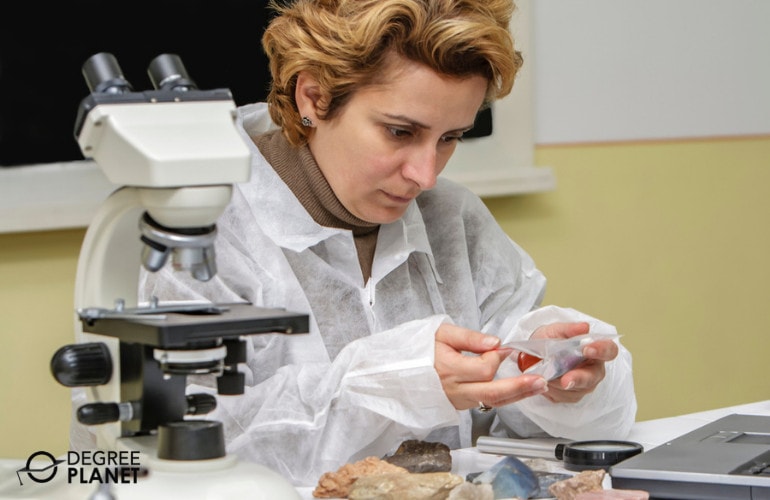
At its heart, anthropology is the study of people. This field addresses the societies in which people live and the factors that shape them. Anthropology also deals with the origins and development of the human species.
There are multiple subfields within this discipline. They include:
- Archaeology. This is the study of the past through artifacts and human remains.
- Cultural anthropology. This is the study of societal factors, such as religion, language, and politics.
- Evolutionary anthropology. This is the study of how the human species came into being and has changed and adapted.
- Forensic anthropology. This is the study of human remains to learn how and when people died.
In an undergraduate degree program, you may touch on all of these subfields. Your studies will likely include courses on world religions and human history, how to dig for clues and conduct anthropological research, and human evolution and genetics.
Editorial Listing ShortCode:
It’s fairly common for anthropology students to engage in fieldwork experiences. You might be able to join a team that explores ancient sites or gathers data. These memorable trips could be located within the country or take you overseas.
Some anthropology bachelors degree programs include concentrations. You may be able to specialize in one of the branches of the field listed above. Another specialization option might deal with sustainability practices. As an anthropology graduate, you could decide to continue your education. A graduate degree can help prepare you for the job title of “anthropologist.”
If you’re committed to advancing as a scientific researcher, that might be the path for you. A doctorate is usually required for roles in academia. A growing number of universities offer online PhD in Anthropology programs in addition to their on-campus options.
Not everyone who earns this degree will continue into higher education, though. Completing a bachelor’s degree program in anthropology could also lead to career paths in museum work, social services, teaching, government, or community health.
Plus, the research and critical thinking skills an anthropology program can help you develop could serve you well in many different fields. You might even find yourself using your anthropology lessons in business, marketing, or human resources.
Anthropology Careers and Salaries

Is anthropology a degree that can help you qualify for a good job, or will you have to stay in school for years and years first? There’s actually a lot you may be able to do with an anthropology degree right out of school.
For one thing, your bachelor’s degree might make you a prime candidate for a job in a museum. Museum technicians help take care of the artifacts or displays in a museum. Some anthropology graduates also run educational programs or give tours.
A graduate degree could potentially take you even further in this field. It could help you qualify for more advanced museum jobs, such as curator or archivist. Other graduate-level possibilities include becoming a survey researcher, a professor, or an anthropologist who works for a research organization.
While anthropologists typically need either an on-campus or online masters in anthropology, those with a bachelor’s may qualify to work in assistant roles.
According to the Bureau of Labor Statistics, you could potentially utilize your knowledge of anthropology in the following jobs:
| Careers | Annual Median Salaries |
| Social and Community Service Managers | $74,000 |
| Anthropologists and Archeologists | $61,910 |
| Market Research Analysts | $63,920 |
| Human Resources Specialists | $62,290 |
| High School Teachers | $61,820 |
| Curators | $60,110 |
| Archivists | $60,050 |
| Survey Researchers | $59,740 |
| Museum Technicians and Conservators | $47,630 |
| Community Health Workers | $46,590 |
Your eligibility for these jobs may vary depending on your level of education. Some roles—such as curator, archivist, and conservator—are reserved for those with graduate degrees. With a teaching license, being a schoolteacher is another possible job track. While most high schools don’t offer anthropology classes, you might be able to teach another humanities subject, such as history.
The understanding of culture likely gained from an anthropology program could also help prepare you for a job that involves serving society. For example, some graduates go into community health or human service.
Editorial Listing ShortCode:
With experience, you might move into management positions in those agencies. For similar reasons, you might also apply your skills in business. For example, human resources, marketing, advertising, and sales departments need employees who understand human behavior and culture patterns.
Bachelor of Anthropology Curriculum & Courses

As an anthropology student, you’ll likely take classes in all the major anthropology branches as well as study some related disciplines.
- Anthropology and Ethics: Studying the past and various cultures raises ethical issues, and this class wrestles with some of those.
- Archaeology: This course provides an overview of the purposes of archaeology and introduces methods used by archeologists.
- Culture and Language: A survey of cultural anthropology discusses factors that influence the development of societies and the role that linguistics plays.
- Early History: You’ll likely take a world history class that covers prehistoric times through the Middle Ages.
- Fundamentals of Anthropology: Your first course in the department will probably provide an overview of the field and its branches.
- Geography: A geography class can give you the opportunity to get to know the landforms, climate, and other features of various parts of the world, which can help you make connections between environment and culture.
- Human Origins: This class explores the evolution of the human species and the evidence supporting current theories of development.
- Modern Anthropology: While many anthropologists study the past, this course addresses ways that anthropological research and practices can play a role in today’s world.
- Social Science Statistics: This course delves into the fundamentals of working with statistics and discusses specific applications for research in the social sciences.
- World Religions: A survey of major religions may touch on both polytheistic and monotheistic religions from around the world.
To earn a traditional or online Bachelor of Arts in Anthropology, you typically need to earn around 120 credit hours, which is usually about 40 classes. You’ll likely take many courses specific to your major as well as general education courses.
Choosing an Online Anthropology Degree Program

Different schools take different approaches to their online anthropology degrees. It’s strategic to pick a school that meshes well with your learning style and goals. Here are some factors to consider:
- Accreditation. Whether you’re studying anthropology or another field, it’s beneficial to pick a regionally accredited school for your college classes.
- Class format. Online classes can be synchronous, in which all students log in at the same time, or asynchronous, in which students complete course materials on their own schedules. Classes can last just 1 month or 2 months each, or they can follow a traditional 16 week semester.
- Cost. You may find some of the most affordable opportunities at public universities in your own state. Financial aid may bring down the cost of a private or out-of-state college, though.
- Electives. Since anthropology is a broad field, you may have space in your schedule for several relevant elective classes. You can look through curriculum guides to see which courses catch your eye.
- Fieldwork. Some programs offer in-person learning opportunities at spots of anthropological interest. Such sessions could be held in the United States or overseas.
- Grad school opportunities. A college may offer a bachelor’s degree program to students as seamless transition into its anthropology masters degree program.
- Specializations. Concentrations could include environmental sustainability, archaeology, and biocultural anthropology. Available choices can vary greatly from one school to another.
As you weigh the pros and cons, you can try to find several schools you’d be happy to attend. Applying to multiple places increases your chances of being admitted to a program. Plus, once you get acceptance letters, you can compare the financial aid packages that each school offers.
Admissions Requirements

If you’re interested in an anthropology online degree program, then you can apply to schools that offer that program. Admissions committees usually ask applicants to submit a packet of materials to showcase their readiness for college.
Here are some common admissions requirements:
- ACT or SAT scores (not required at all colleges)
- Essay or statement about you and your goals
- High school transcripts, plus transcripts from any colleges you’ve attended
- Reference letters from professional or academic leaders
There will probably be a form to fill out, too, and some colleges request an application fee.
Online Anthropology Degree Programs Accreditation

When searching for a college for your anthropology major, it can be beneficial to look for a school with regional accreditation.
Regional accreditation is a sign that a college or university lives up to educational standards. To be regionally accredited, a school must provide quality education throughout its many departments. Whether or not a school meets the necessary standards is determined by an outside accrediting organization.
Because accredited schools meet certain standards, other colleges look more favorably upon their coursework, so your credits are more likely to be eligible for transfer to other schools.
Editorial Listing ShortCode:
An accredited degree can also increase your chances of being accepted into a graduate program. Employers might be more likely to hire candidates with accredited degrees, too.
Financial Aid and Scholarships

If you qualify, you may be able to get help paying for your anthropology studies. The federal government is a key source of funding for many college students. To start the process of getting government help, you can fill out the Free Application for Federal Student Aid (FAFSA).
Like many students, you may qualify for federal loans. Depending on your financial circumstances, you might also be able to receive grants. Your state may offer similar programs as well.
Scholarships can be another valuable source of funding. Your financial aid package may include scholarships from your college, and you can look into outside awards too. Scholarships can be one-time gifts or renewable prizes for each year of your program.
Some employers even help their workers pay for college. If you’re working, you can talk to your HR department about whether you can receive partial or full reimbursement for your tuition expenses.
What Is Anthropology?
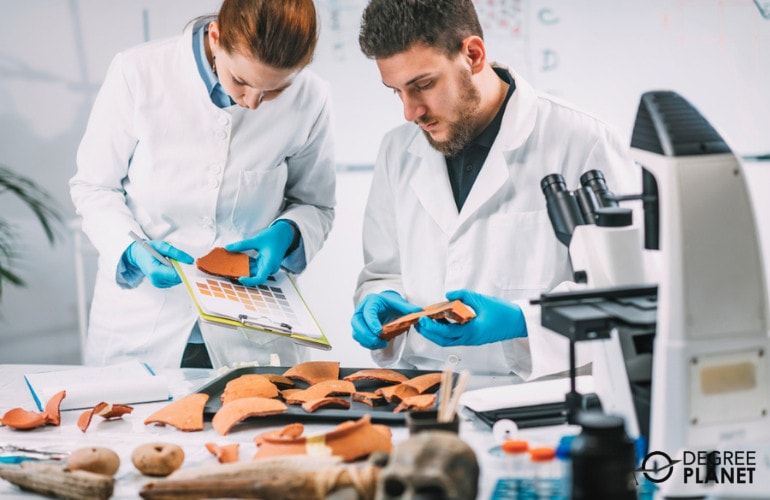
Anthropology is the study of humans and the societies they create. Topics studied in anthropology include culture, language, religion, and political systems.
There are multiple branches of anthropology. Some anthropologists focus on evolution, human adaptations, and prehistoric societies. Others study the cultural aspects of anthropology. Their work might address linguistics or interactions with the environment.
Archaeology is an additional subfield of anthropology. Anthropologists may study the past, or they may deal with current societies and groups of people.
Anthropology research can be useful in discussions about sustainability, social justice, and diversity.
Is Anthropology a Good Major?

Yes, anthropology is a good major for many undergraduate students. Studies in this field can lead to profitable career paths in various sectors.
Some anthropology graduates find work in museums. According to the Bureau of Labor Statistics, archivists, curators, and museum workers usually earn between $30,450 and $96,500 each year.
Anthropology skills may also be useful in business roles, like HR specialist, market researcher, and sales representative. Data from the Bureau of Labor Statistics shows that the median annual salary for business and financial jobs is $76,570.
A bachelor’s degree program could also help prepare you for master’s or doctoral studies. Anthropologists, who typically have graduate degrees, earn between $37,870 and $99,830 annually (Bureau of Labor Statistics).
What Can I Do with an Anthropology Degree?
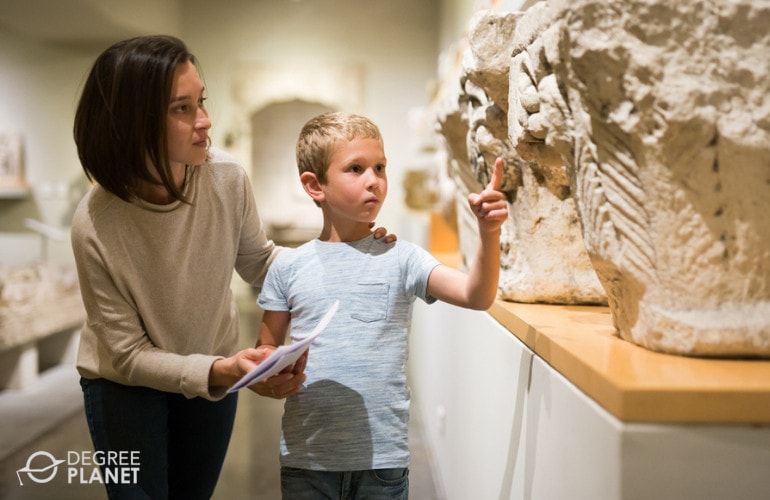
Anthropologists often work for research organizations or the federal government. According to the Bureau of Labor Statistics, that role usually pays between $37,870 and $99,830 per year. A graduate degree is typically required.
If going for a master’s degree or a doctorate isn’t in your immediate plans, you may have other job options, such as working in a museum as a technician or a tour guide. You could also pursue a license to teach history or political science to high schoolers.
If you’d prefer business, HR or marketing departments might appreciate your skills.
Can You Get an Anthropology Degree Online?
Yes, many schools offer an online bachelor’s degree in anthropology. Online degree program have similar curriculums to their on-campus counterparts.
Online anthropology programs may include reading assignments, video lectures, discussion boards, and research projects. Although you won’t be in the same room as your professors and classmates, you can still develop your professional network.
Editorial Listing ShortCode:
In addition, you might get a chance to travel for hands-on work at interesting anthropological sites. Some schools even offer virtual trips or digital resource collections so that you can gain invaluable experience without going far from home.
How Long Does It Take to Get an Online Degree in Anthropology?
On-campus students often spend 4 years of full-time study earning a bachelor’s degree in anthropology. By going to school online, you may be able to complete your studies sooner than that.
An online degree program often may have accelerated courses so that you can get through the curriculum more quickly. In accelerated programs, short terms are held throughout the year. During each one, you’ll typically take just one or two classes. Every 8 weeks or so, you’ll move on to a new set of courses.
With an accelerated online format, you could potentially finish in 3.5 years or less.
What Jobs Can You Get with an Anthropology Degree?

Some anthropology professionals work in museums. According to the Bureau of Labor Statistics, a bachelors degree is often sufficient for getting a job as a museum technician who tends to exhibits and display pieces.
Others choose careers in community service. They may provide health services to at-risk communities or head up outreach programs. There’s also the possibility of working in the business world. Understanding culture and societal trends can be helpful for sales or marketing careers.
An anthropology degree could also be a step toward graduate studies and a research career as an anthropologist, an archaeologist, or a museum curator.
What’s the Difference between a Bachelor’s Degree in Anthropology vs. Sociology?
Both anthropologists and sociologists study human society. There is some overlap between the two fields, but they differ in several major ways.
| Anthropology | Sociology |
|
|
Either of these bachelor’s degrees could lead to graduate studies and a potential research career.
What’s the Difference between a Bachelor in Anthropology vs. Archeology?
Anthropologists often study past civilizations. Archaeologists do too. While these two majors are similar, they’re not identical.
| Anthropology | Archaeology |
|
|
Because of the similarities between these two disciplines, archaeology is usually considered a subfield of anthropology.
Is a Degree in Anthropology Worth It?
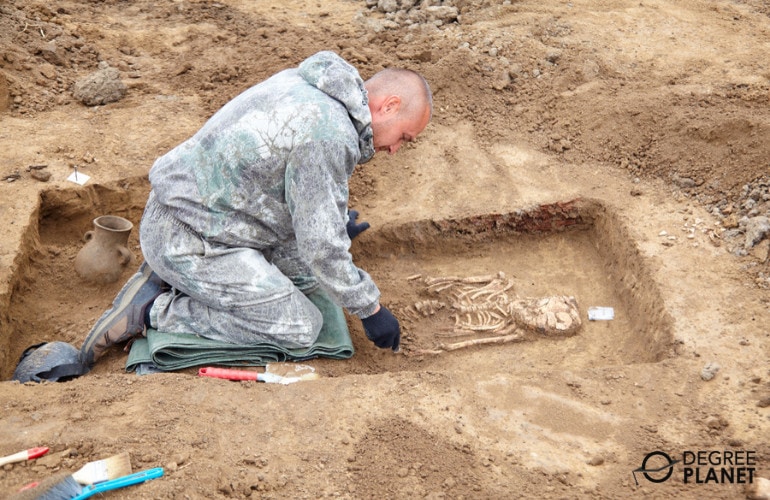
Yes, a degree in anthropology is worth it for many professionals. Over the next decade, the Bureau of Labor Statistics expects to see a 7% growth rate for anthropology and archaeology jobs.
Getting a traditional or online bachelor degree in this field could be the first step toward the advanced training that those roles require. Plus, studying anthropology at the undergraduate level can help equip you with skills that are valuable in many industries.
Editorial Listing ShortCode:
For example, you have the opportunity to become better at research, statistical analysis, and understanding the culture around you. In addition to anthropology-specific positions, those strengths could also be useful in business, human services, education, and other fields.
Universities Offering Online Bachelors in Anthropology Degree Programs
Methodology: The following school list is in alphabetical order. To be included, a college or university must be regionally accredited and offer degree programs online or in a hybrid format.

Arizona State University offers a program online for a Bachelor of Arts in Anthropology. Classes are 7.5 weeks long. The curriculum emphasizes critical thinking and effective writing. Courses include Introduction to Cultural Anthropology, Statistics for Social Scientists, Buried Cities and Lost Tribes, and more.
Arizona State University is accredited by the Higher Learning Commission.
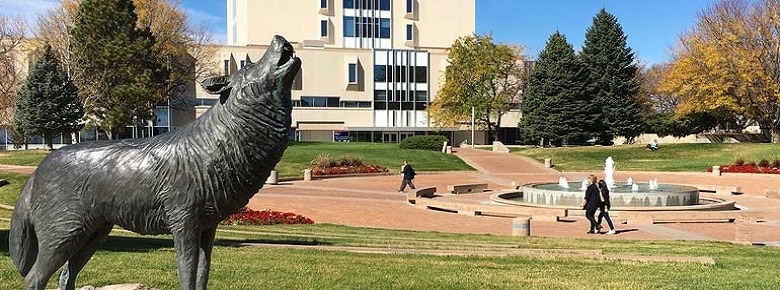
Colorado State University offers an online bachelor’s degree in anthropology program. Class sizes average 17 students, and the program features optional summer field experiences in paleontology, archaeology, and ethnography.
Courses include History of Anthropological Thought, Archaeology of North America, Introduction to Forensic Anthropology, Indigenous Peoples of North America, and more.
Colorado State University is accredited by the Higher Learning Commission.

Eastern Oregon University offers online, research-oriented programs for a B.A. or B.S. in Anthropology. Courses include Intro to Archaeology, Language and Culture, General Sociology, Ethnographic Research Methods, Archaeological Research Methods, and more.
The programs are highly flexible and customizable, with no on-campus requirements.
Eastern Oregon University is accredited by the Northwest Commission on Colleges and Universities.

Florida International University offers a BA in Anthropology and Sociology. Courses include Introduction to Anthropology, World Ethnography, Research Methods, Anthropological Theories, Social Theory, and more. Students earning this degree are also encouraged by the program to consider a minor in geography.
Applicants must have a GPA of at least 2.0 to qualify.
Florida International University is accredited by the Southern Association of Colleges and Schools Commission on Colleges.

Franklin University offers a B.S. in Social Sciences that can be earned 100% online. Each class is 6 or 12 weeks long. The program is customizable and interdisciplinary. It culminates with a capstone project or practicum.
Courses include Applied Research Methods, Philosophy of Science, Business and Professional Writing, and more.
Franklin University is accredited by the Higher Learning Commission.
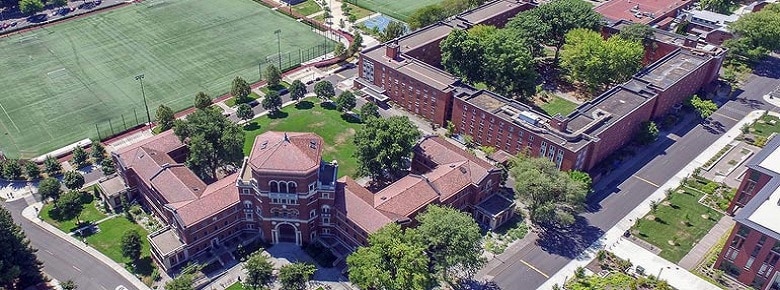
Oregon State University offers both a B.A. and a B.S. in Anthropology. Coursework can be completed entirely online, and there are four start dates each year. Specialization options include General Anthropology, Archaeology, Biocultural, and Cultural and Linguistic.
The Archaeology specialization includes a field experience.
Oregon State University is accredited by the Northwest Commission on Colleges and Universities.

Southern New Hampshire University offers a program online for a BA in Anthropology. The program includes experiential learning opportunities and courses like Human Origins and Evolution: Biological Anthropology, Anthropology in the Contemporary World, and more.
Southern New Hampshire University is accredited by the New England Commission of Higher Education.

Troy University’s anthropology degree program includes both coursework and fieldwork to help ensure that students are well-prepared for graduate study or the workforce. The program is available both online and on campus in Alabama.
Troy’s online programs are designed to help adult learners balance school with work and life. The school provides small class sizes and experienced professors.
Troy University is accredited by the Southern Association of Colleges and Schools Commission on Colleges.

The University of Central Florida offers an online program for a BA in Anthropology. Students study archaeology, cultural anthropology, linguistics, and physical anthropology.
The program is designed to help students develop an understanding of the methods and theories underlying anthropology and the skills needed to conduct fieldwork and research. Possible careers for graduates include archaeologist, conservationist, or public policy analyst.
The University of Central Florida is accredited by the Southern Association of Colleges and Schools Commission on Colleges.

The University of Florida offers an online program for a Bachelor of Arts in Anthropology. The program is designed to teach students how to analyze social and cultural issues from a global perspective and how to analyze data and conduct research.
Possible career opportunities for graduates include anthropologist, archaeologist, archivist, conservationist, or public policy analyst.
The University of Florida is accredited by the Southern Association of Colleges and Schools Commission on Colleges.

The University of Houston—Clear Lake offers a B.S. in Anthropology that can be earned online.
The program offers both quality and convenience and is designed to prepare students for careers in fields such as teaching, international relations, and human resources. The curriculum emphasizes fieldwork, critical thinking, and strong communication skills.
The University of Houston—Clear Lake is accredited by the Southern Association of Colleges and Schools Commission on Colleges.

The University of Maryland Global Campus offers a Bachelor’s in Social Science that can be earned entirely online. Select courses are also available in a hybrid format. The program includes the study of anthropology, behavioral sciences, sociology, psychology, gerontology, and more.
The curriculum was designed with input from industry experts and employers.
The University of Maryland Global Campus is accredited by the Middle States Commission on Higher Education.

The University of Massachusetts—Dartmouth offers a Bachelor of Arts in Sociology and Anthropology. The program is highly flexible and can help prepare students for a variety of careers. Students in the program can gain hands-on experience through an internship, which can typically be completed at a convenient location.
The University of Massachusetts – Dartmouth is accredited by the New England Association of Schools and Colleges.

The University of Memphis offers a fully online program for a BA in Anthropology. Anthropology majors study human culture, behavior, social organization, and evolution. The program includes the study of different cultures and can be helpful in preparing students for jobs that require people skills.
UofM’s online programs are designed to provide the same quality of instruction as those on campus.
The University of Memphis is accredited by the Commission on Colleges of the Southern Association of Colleges and Schools.

The University of Nebraska—Omaha offers both a Bachelor of Arts and a Bachelor of Science in Sociology, with a concentration in Anthropology.
Coursework can be completed online. Courses include Introduction to Physical Anthropology, Essentials of Archaeology, Cultural Anthropology, African Peoples and Cultures, Medical Anthropology, and more.
The University of Nebraska—Omaha is accredited by the Higher Learning Commission.
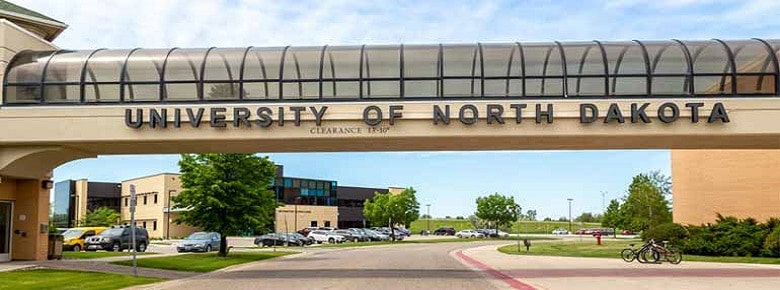
The University of North Dakota offers a Bachelor of Arts in Social Science that can be earned on campus or online. Students have opportunities to study abroad or gain real-world experience through an internship. The online courses are flexible and self-paced, and the curriculum is customizable.
Courses are available in anthropology, economics, geography, history, political science, and more.
The University of North Dakota is accredited by the Higher Learning Commission of the North Central Association of Colleges and Schools.

The University of Washington offers an online program for a Bachelor of Arts in Integrated Social Sciences. Students are required to create portfolios and take courses such as Social Science Theory in Context, Black Cultural Studies, Anthropology of International Health, Media Ethics, and more.
The University of Washington is accredited by the Northwest Commission on Colleges and Universities.

Utah State University offers a BS in Anthropology that can be earned 100% online. Students can choose an emphasis in Environmental Change, Community Engagement, or Wellness. The program includes 21 industry-relevant courses, and there are three start dates each year.
The program can help prepare students for careers in social services, law, business, education, and more.
Utah State University is accredited by the Northwest Commission on Colleges and Universities.
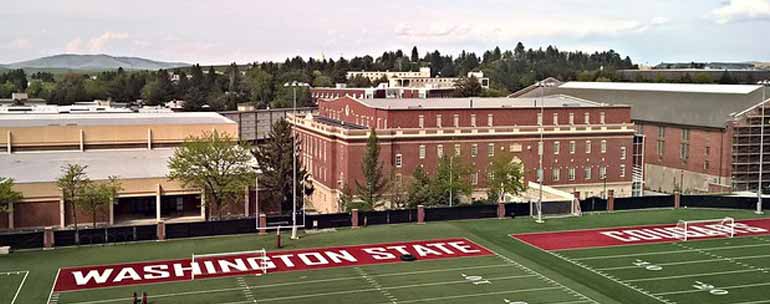
Washington State University offers a Bachelor of Arts in Anthropology through its global campus. Students can begin in the spring, summer, or fall. Coursework includes Global Cultural Diversity, Archaeological Methods and Interpretation, Introduction to Biological Anthropology, Old World Civilizations, and more.
Washington State University is accredited by the Northwest Commission on Colleges and Universities.

The B.A. in Anthropology program from Western Illinois University is designed to help students develop skills in research, collaboration, data management, and critical thinking. The program is highly flexible and can be completed on campus, online, or in a hybrid format.
Students in the program take courses in field and laboratory research methods, archaeology, history, comparative culture studies, and more.
Western Illinois University is accredited by the Higher Learning Commission.
Getting Your Bachelor’s in Anthropology Online

Are you intrigued by the idea of studying anthropology—exploring past civilizations and becoming more familiar with present ones?
Anthropology degree programs have classes in human evolution, linguistics, cultural diversity, and more. They often give opportunities to hone research skills and travel to exotic places for hands-on experiences.
Today, many colleges offer anthropology bachelors degree programs online. Through virtual classes, you can learn the same or similar information that you would on campus, and you may even have access to digital artifact libraries.
To begin your college education, you can check out the online archaeology programs available at accredited schools.

